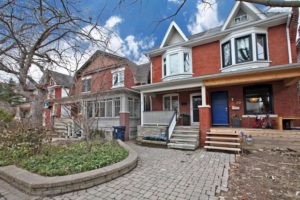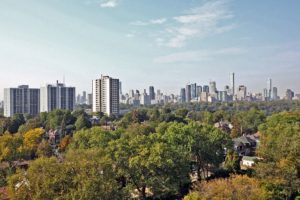Home listed low near Withrow Park draws eight offers

31 Grandview Ave., Toronto
Asking price: $999,000
Selling price: $1,342,000
Previous selling prices: $540,000 (2006); $117,000 (1994)
Taxes: $4,497 (2017)
Days on the market: Six
Listing agent: Sandra Pate, Royal LePage Real Estate Services Ltd., Johnston and Daniel Division
The action

The foundations of this 2½-storey house were laid in 1909.
There were few ownership opportunities in the desirable neighbourhood near Withrow Park this spring. This semi-detached house on a 14-by-120-foot lot gained extra attention with an opening price under $1-million. Competition between eight buyers drove the final purchase price to $1.342-million in May.
“It isn’t a very big house, it’s only about 14 feet wide,” agent Sandra Pate said.
“I couldn’t find any comparables in Riverdale that were that narrow, so we had to be conservative [with the price].”
What they got

The kitchen features granite counters and hardwood floors.
The foundations of this 2½-storey house were laid in 1909, but the interior is fairly modern with open living and dining areas, as well as an eat-in kitchen with granite counters, hardwood floors and a back door to a south-facing backyard and laneway.
Three bedrooms fill out the top two floors. The basement has its own entrance, open den, kitchen and bathroom.
The agent’s take

The basement has its own entrance, open den, kitchen and bathroom.
“Grandview is a special street because it’s a one-block street and you don’t get any through traffic, it’s right beside the park and you’ve got nice proximity to Danforth without being too close,” Ms. Pate said.
“They also have their own street fair. It’s a very neighbourly street, so I knew it would be popular.”
This property is also in top shape with heated floors in the upstairs bathroom to a waterproofed basement. “[The sellers] did a lot of work when they first moved in,” Ms. Pate said.




